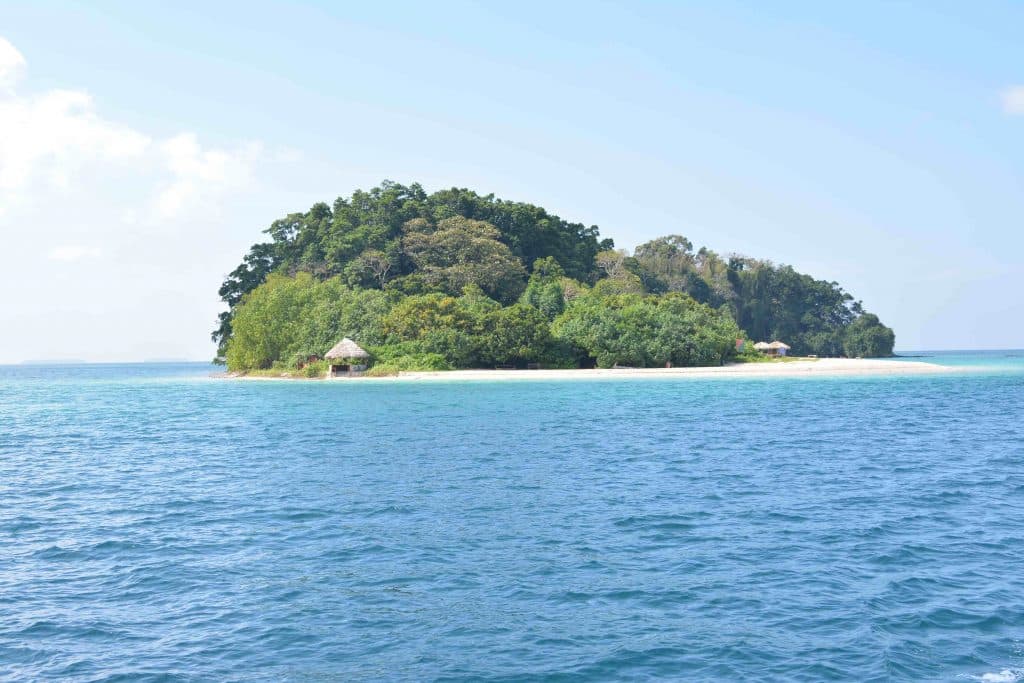Jolly Buoy Island’s efforts to remain plastic-free

On this International Plastic Free Day, sharing about a plastic-free place.
The Andaman and Nicobar Islands have been taking measures to minimize the use of plastics, particularly on ecologically sensitive islands like Jolly Buoy and nearby Red Skin Island. This is done to prevent pollution of the surrounding waters, protect the coral reefs, and maintain the ecological balance of the area. Jolly Buoy Island, located in the Andaman and Nicobar Islands of India, is known for its strict environmental regulations, including a ban on plastic items to preserve its pristine natural beauty and protect the marine ecosystem.
My recent visit to Jolly Buoy as an eco-blogger made me super happy. I was so happy to see Visitors to Jolly Buoy Island are typically required to adhere to strict environmental guidelines, which include not bringing any plastic items onto the island. It was really nice to see the efforts towards a plastic-free Jolly Buoy Island. It’s a great feeling to see an island flourish in a plastic-free environment. The protection of the marine ecosystem and the surrounding environment has been a priority for the authorities on the island.
Plastic pollution is a significant environmental concern worldwide, and these islands, known for their pristine beauty and rich biodiversity, are no exception. Tourism, which is a significant industry in the Andaman and Nicobar Islands, plays a role in generating plastic waste. Various awareness campaigns and educational programs have been conducted to inform residents, tourists, and businesses about the harmful effects of plastic pollution and the importance of reducing plastic use.

Here are some key points that make Plastic-free Jolly Buoy Island a success:
- Plastic Bans: The local authorities in the Andaman and Nicobar Islands have implemented bans on single-use plastics, such as plastic bags and bottles, and disposable plastic items, in many areas, including ecologically sensitive islands and protected marine reserves. Visitors are often requested to bring reusable water bottles and bags, and plastic items are not allowed on the island.
- Awareness Campaigns: To promote responsible tourism and eco-friendly practices, awareness campaigns are often conducted for visitors. These campaigns emphasize the importance of not littering and adhering to the plastic ban.
- Alternative Materials: Efforts have been made to promote the use of eco-friendly alternatives to plastic, such as biodegradable bags, bamboo products, and reusable containers. These alternatives help reduce the reliance on traditional plastic items.
- Waste Management: Improved waste management practices, including recycling and proper disposal of plastic waste, have been encouraged to prevent plastic pollution from entering the environment.
- Conservation Initiatives: Besides the plastic ban, other conservation initiatives are in place to protect the island’s natural resources. These include guidelines for snorkeling and diving to minimize damage to coral reefs and marine life.
- Regulations for Tourism: Regulations have been put in place to ensure responsible tourism practices, including guidelines for carrying plastic items to sensitive areas like beaches and marine reserves. The authorities at the Mahatma Gandhi Marine National Park have implemented strict regulations to ensure that visitors comply with the plastic ban. These regulations are enforced to maintain the pristine beauty of the island and to protect the marine life.
- Community Participation: Engaging local communities and businesses in plastic reduction efforts has been a key strategy. Many local organizations and community groups have taken up initiatives to clean up beaches and promote sustainable practices.
- Environmental Conservation: Jolly Buoy Island is part of the Mahatma Gandhi Marine National Park, and it is known for its rich marine biodiversity, including coral reefs and diverse aquatic life. To protect this fragile ecosystem, steps have been taken to minimize the environmental impact, including reducing plastic pollution.

It’s important to note that these measures are essential for protecting the fragile ecosystems of the Andaman and Nicobar Islands, which include coral reefs, mangroves, and diverse marine life. Additionally, the efforts to minimize plastic use align with broader global initiatives to combat plastic pollution and promote environmental sustainability.
As the situation may evolve, it’s advisable to check with local authorities and recent sources for the latest updates on plastic regulations and conservation efforts in the Andaman and Nicobar Islands if you plan to visit or have an interest in the region. Therefore, if you plan to visit Jolly Buoy Island or any other environmentally sensitive area, I recommend checking to confirm the current status of plastic bans and environmental conservation efforts.
Andaman Island is full of experiences that are of different shades.
From My Green Bag
To add on, read and join the Sustainability with Prachi series and listen to interviews with Eco-conscious people who are trying their bit towards conscious and sustainable living practices only on Green Tatwa Talks. There is so much to learn and explore from all of them I have interacted with, Do listen and drop in your views in the comments. Check here to learn more about all the Eco-Friendly dates.
Keep visiting.
Being Eco-Friendly is not a choice, make it a habit.








Recent Comments